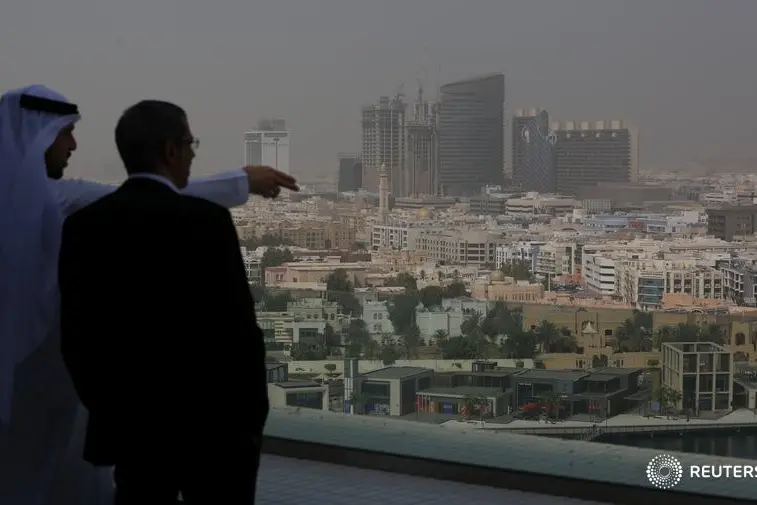PHOTO
Foreign capital inflows into the Middle East and North Africa (Mena) are expected to rise from Dh516 billion last year to Dh668 billion ($182 billion) this year, an increase of nearly 30 per cent, driven by sovereign issuances and banking inflows, predicts a new research released on Tuesday.
According to the Institute of International Finance (IIF), the main source of inflows in 2018 remains sovereign bond issuance as the GCC countries raised Dh112 billion ($30.5 billion) in eurobonds in the first half of the year.
However, non-resident foreign inflows are predicted to plunge again next year to Dh564.44 billion ($153.8 billion).
IIF analysts said Mena oil exporters are showing more resilience to emerging markets turmoil this year than other emerging market subgroups around the world, thanks to higher oil prices, durable US dollar pegs, relatively low debt levels and ample foreign reserves. All these factors also make oil exporters less risky and less prone to emerging markets contagion. It expects capital inflows to rebound across the board and reach $128 billion this year among oil-exporting Mena countries.
The IIF has predicted Dh99.45 billion non-resident capital inflows into the UAE this year, a slight decline of Dh3 billion as compared to last year. But inflows are projected to pick up in the next two years to Dh100.55 billion in 2019 and Dh101.66 billion 2020.
According to the IIF report, non-resident capital inflows to Mena oil importers are expected to decline to $54 billion this year, from $67 billion in 2017, as global monetary tightening, higher oil prices and external imbalances put Mena oil importers at risk.
Garbis Iradian, chief economist, Mena, IIF, said resident capital outflows are expected to reach Dh954 billion ($260 billion) this year, driven by the substantial increase in current account surpluses.
"As in the past, proceeds from higher inflows of petrodollars and affordable international borrowing are being transferred into sovereign wealth funds and invested abroad," he said in the report.
The report said contagion from Turkey to date has been relatively limited in the context of trade and capital flows to the Mena region.
"Higher oil prices, pegged currencies in the GCC, low debt, large public foreign assets, and a lower degree of integration into global financial markets make Mena, and particularly GCC, less vulnerable to global macro events," the report said.
Copyright © 2018 Khaleej Times. All Rights Reserved. Provided by SyndiGate Media Inc. (Syndigate.info).





















